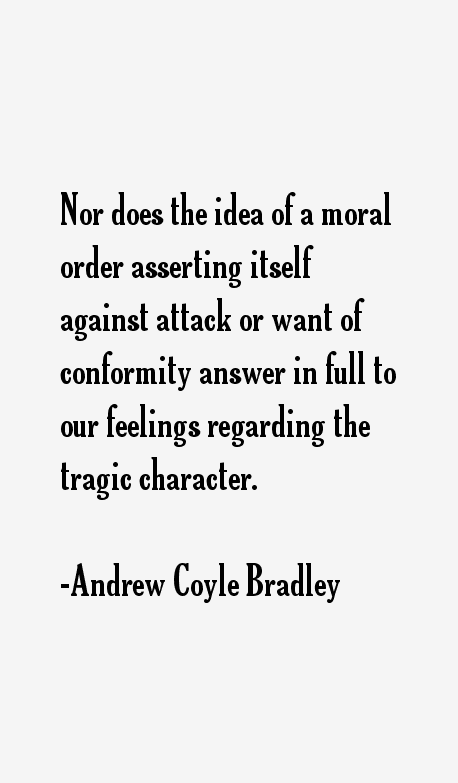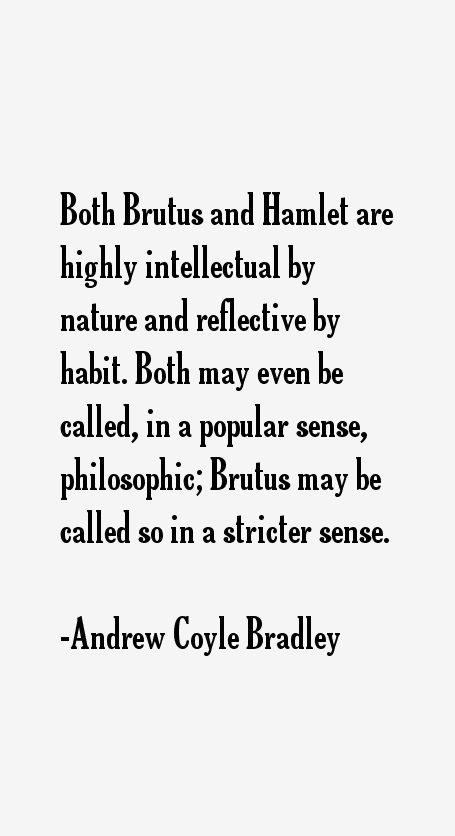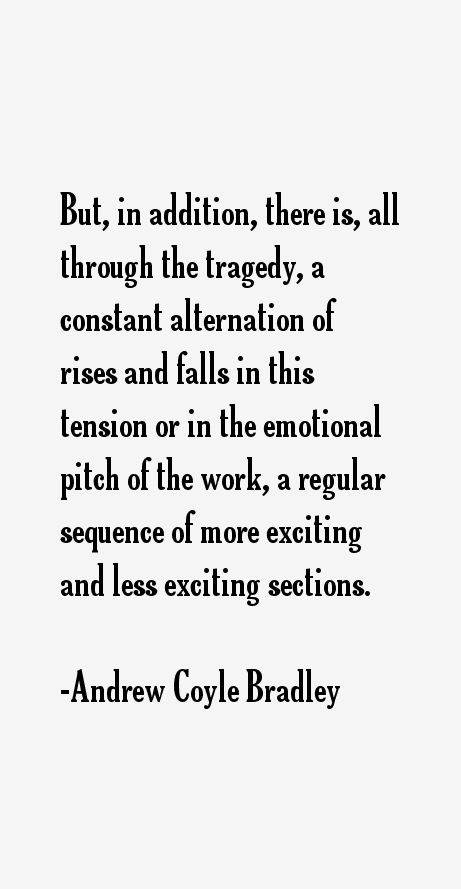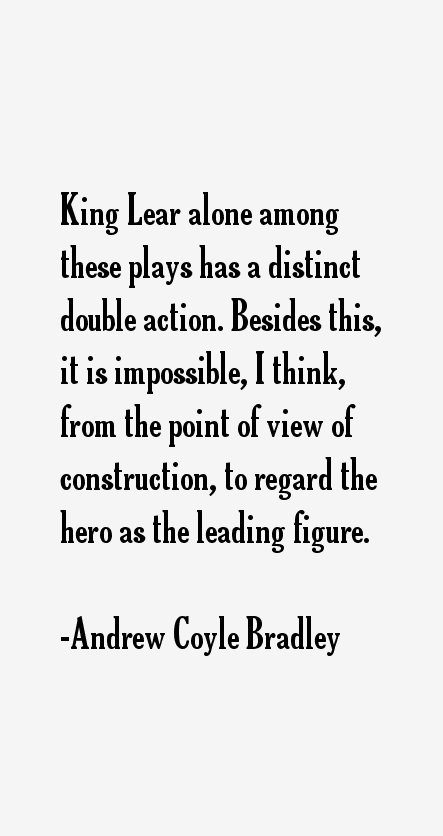Andrew Coyle Bradley Quotes & Sayings
17 most famous Andrew Coyle Bradley quotes and sayings (judge). These are the first 10 quotes we have.

“Shakespeare also introduces the supernatural into some of his tragedies; he introduces ghosts, and witches who have supernatural knowledge.”
“When Shakespeare begins his exposition thus he generally at first makes people talk about the hero, but keeps the hero himself for some time out of sight, so that we await his entrance with curiosity, and sometimes with anxiety.”
“In approaching our subject it will be best, without attempting to shorten the path by referring to famous theories of the drama, to start directly from the facts, and to collect from them gradually an idea of Shakespearean Tragedy.”

“In Shakespearean tragedy the main source of the convulsion which produces suffering and death is never good: good contributes to this convulsion only from its tragic implication with its opposite in one and the same character.”

“Nor does the idea of a moral order asserting itself against attack or want of conformity answer in full to our feelings regarding the tragic character.”
“We might not object to the statement that Lear deserved to suffer for his folly, selfishness and tyranny; but to assert that he deserved to suffer what he did suffer is to do violence not merely to language but to any healthy moral sense.”
“A Shakespearean tragedy as so far considered may be called a story of exceptional calamity leading to the death of a man in high estate. But it is clearly much more than this, and we have now to regard it from another side.”

“Both Brutus and Hamlet are highly intellectual by nature and reflective by habit. Both may even be called, in a popular sense, philosophic; Brutus may be called so in a stricter sense.”

“But, in addition, there is, all through the tragedy, a constant alternation of rises and falls in this tension or in the emotional pitch of the work, a regular sequence of more exciting and less exciting sections.”

“King Lear alone among these plays has a distinct double action. Besides this, it is impossible, I think, from the point of view of construction, to regard the hero as the leading figure.”
Andrew Coyle Bradley Quotes Rating
No Ratings Yet
Leave A Comment
























